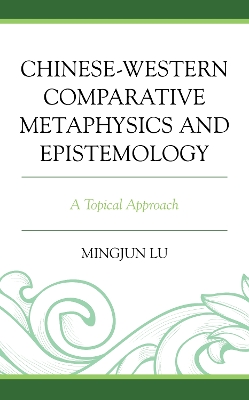Chinese-Western Comparative Metaphysics: From Ancient to Early Modern Times features a comparative analysis of the fundamental metaphysical assumptions and their epistemological implications in Chinese and Western philosophy. Adopting the methodology of topical comparison that seeks to correlate two or multiple approaches to the same set of questions raised by a single topic or issue, Mingjun Lu argues for commensurability in Chinese and Western metaphysics of both Nature and the mind, as well as the epistemology of knowledge dictated by these two fundamental hypotheses of the first principle or primary cause. Lu explores this philosophical commensurability through a comparative analysis of the canonical works written by Plato, Aristotle, Bacon, Descartes, and Leibniz on the Western side, and by Confucius, Laozi, Zhuangzi, Xunzi, Lu Jiuyuan, Zhu Xi, and Wang Yangming on the Chinese side. The parallels and analogues revealed by the comparative lens, Lu proposes, bring to light a coherent and well-developed Chinese metaphysical and epistemological system that corresponds closely to that in the West. By inventing such new categories as cosmo-substantial metaphysics, consonant epistemology, natural hermeneutics, and onto-mind reading to reconceptualize Chinese and Western philosophy, Lu suggests alternative and more commensurable grounds of comparison.
- ISBN10 1793625077
- ISBN13 9781793625076
- Publish Date 23 October 2020
- Publish Status Active
- Publish Country US
- Imprint Lexington Books
- Format Hardcover
- Pages 236
- Language English
